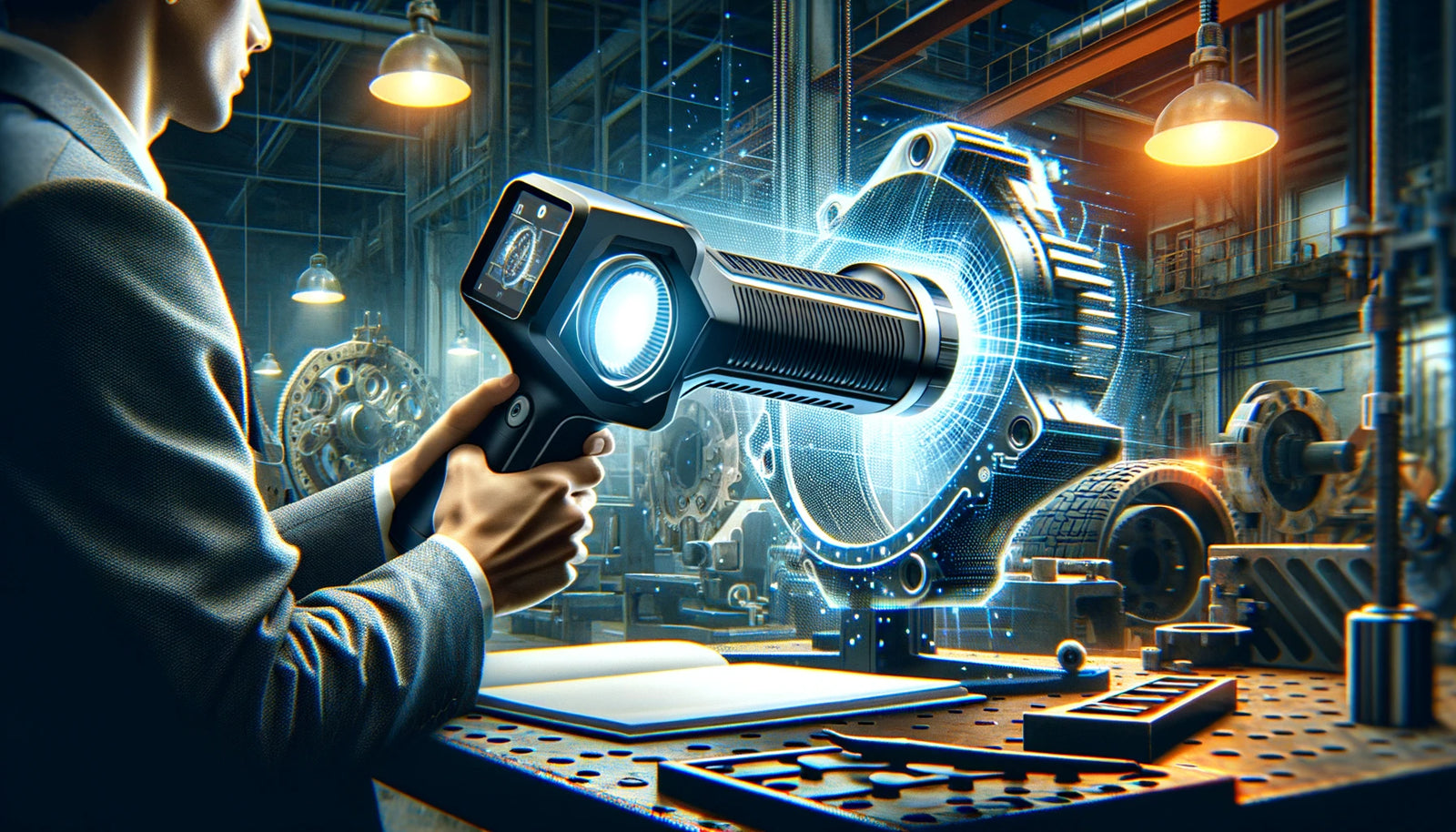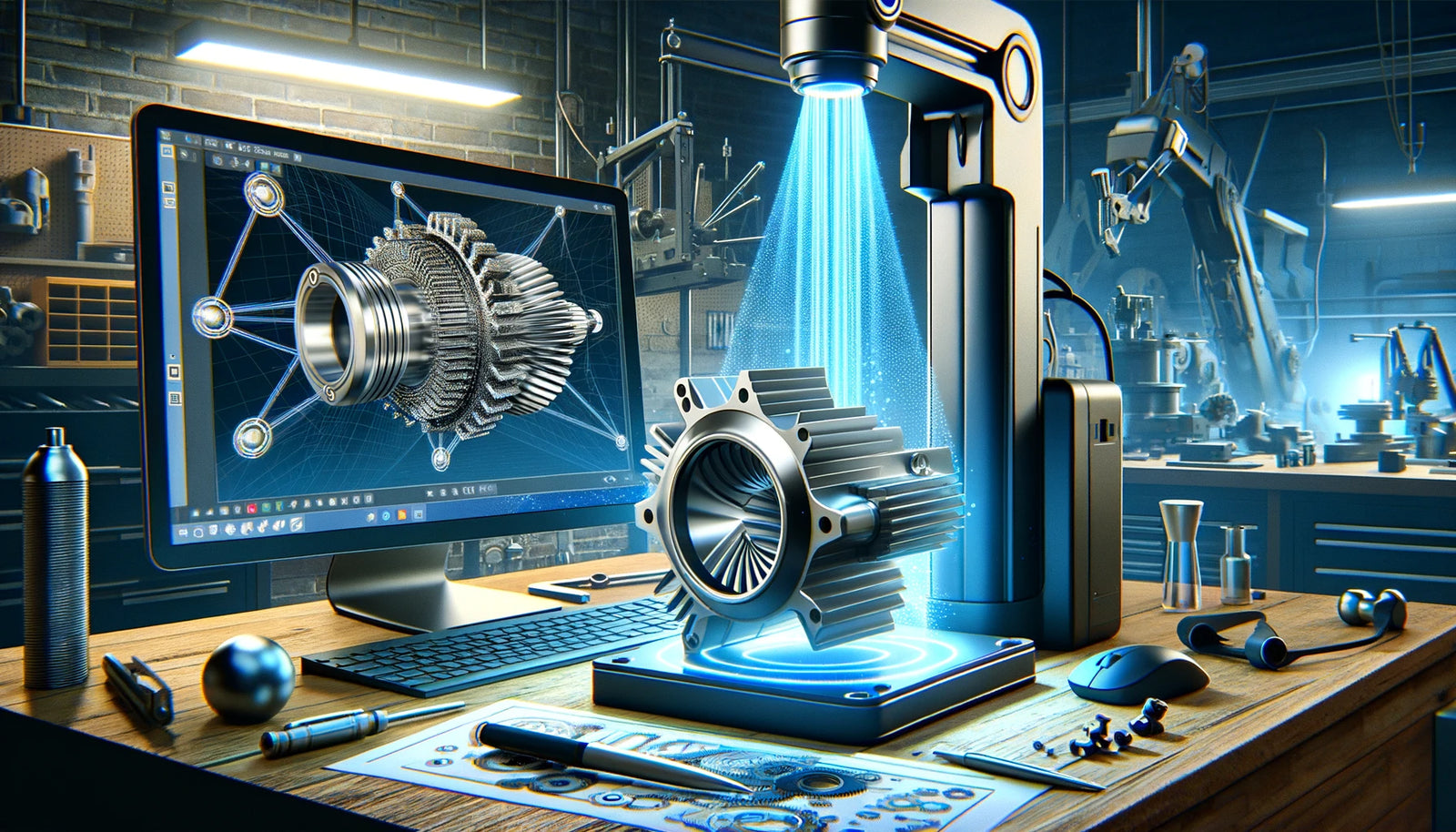In the rapidly evolving landscape of industrial manufacturing and design, the demand for efficient, precise, and versatile tools is ever-present. Among these, 3D scanners stand out as indispensable assets, revolutionizing processes from quality control to reverse engineering. However, navigating the market to find a scanner that best fits your industrial needs can be daunting. This guide aims to simplify that process, with a special emphasis on an innovative solution that's transforming the industry: the all-in-one, battery-powered handheld scanner that leverages photogrammetry. It's as easy to use as a mobile phone and designed with industrial applications in mind.
Understanding 3D Scanning Technology
Before diving into what makes an all-in-one handheld scanner the ideal choice, let's briefly revisit what 3D scanning entails. 3D scanning is a technology that captures the physical dimensions and shapes of objects, converting them into digital 3D models. In industrial contexts, this technology is pivotal for tasks such as inspecting components, creating digital twins for simulation, or reverse engineering parts without original CAD models.
Among the various types of 3D scanning technologies, photogrammetry has emerged as a standout for its ability to produce high-resolution models by analyzing photographs taken from different angles. This technology is at the heart of the next generation of 3D scanners, combining ease of use with sophisticated capabilities.
The All-In-One Handheld Scanner: A Game-Changer for Industries
The latest breakthrough in 3D scanning technology is the all-in-one handheld scanner, specifically designed to meet the robust demands of industrial applications. Here’s why this innovative tool is gaining traction across diverse sectors:
Portability and Ease of Use
Imagine the freedom of moving around your workspace, scanning various objects without the tether of wires or the need to lug around a laptop for processing. This scanner is battery-powered and integrates both scanning and processing capabilities within a single device, making it as portable and easy to use as a mobile phone.
Precision and Speed with Photogrammetry
Utilizing photogrammetry, this scanner captures detailed and accurate digital representations of physical objects. Unlike traditional methods that may require stationary setups and tedious post-processing, this device simplifies the workflow without compromising on precision.
Versatile Applications
Whether it's capturing the intricacies of a complex machinery component, conducting thorough quality inspections, or reverse engineering parts for which no digital data exists, this scanner is equipped to handle it all. Its versatility makes it an invaluable tool across various industries, from automotive to aerospace, electronics, and beyond.
Cost-Effectiveness
By consolidating multiple functions into a single device, companies can save on purchasing separate equipment for scanning and processing. Additionally, its ease of use translates into reduced training time and quicker deployment, further maximizing return on investment.
Enhanced Productivity
With its all-in-one design, operators can scan and process data on the go, significantly reducing the time from data capture to usable digital models. This efficiency boost allows businesses to accelerate product development cycles, enhance quality control processes, and improve overall productivity.
Choosing the Right 3D Scanner for Your Needs
While the all-in-one handheld scanner represents a significant advancement in 3D scanning technology, selecting the right tool requires a careful assessment of your specific needs. Here are some factors to consider:
- Complexity of the Objects: Evaluate the complexity of the objects you intend to scan. The photogrammetry-based scanner excels in capturing detailed surfaces and intricate designs.
- Environment: Consider the environments in which you'll be using the scanner. The portability and durability of an all-in-one handheld make it ideal for dynamic industrial settings.
- Integration with Existing Workflows: Ensure the scanner's output is compatible with your existing CAD or design software to streamline your workflows.
Conclusion
The advent of all-in-one, battery-powered handheld 3D scanners is a landmark in the field of industrial manufacturing and design. Offering unmatched portability, ease of use, and precision, these devices are set to become the new standard in a wide array of industrial applications. By choosing a scanner that aligns with your specific needs, you can unlock new levels of efficiency, accuracy, and innovation in your operations.






Leave a comment (all fields required)